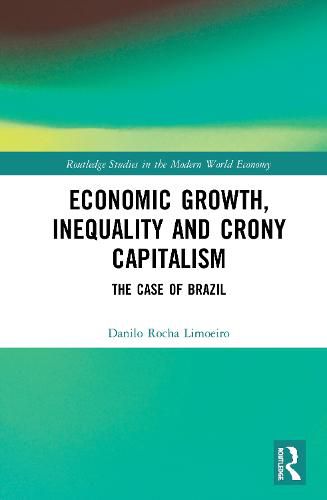Readings Newsletter
Become a Readings Member to make your shopping experience even easier.
Sign in or sign up for free!
You’re not far away from qualifying for FREE standard shipping within Australia
You’ve qualified for FREE standard shipping within Australia
The cart is loading…






Researchers in international development have long argued that the high costs of doing business harms prosperity in developing countries, a claim that invites the question of why governments impose these costs and why societies fail to enact reforms reducing them. This book seeks to answer the question by looking at the case of Brazil, a large and highly unequal economy riddled with state-imposed transaction costs. By delving into the political dynamics underlying a costly business environment, this book provides the reader with novel insights into crony capitalism and inequality. It argues that the root cause of a costly business environment is the collusion between political actors, bureaucrats and business insiders. Politicians and bureaucrats relish their discretion over rules and policies as a power resource, since they can increase or decrease the costs of doing business faced by firms and sectors. Business insiders collude with government agents to access the loopholes that decrease the cost of doing business, thus gaining a competitive edge over outsiders. This gives the insiders weaker preferences for reforms that could decrease the overall cost of doing business. By pursuing their self-interest, these actors create a low-level equilibrium that perpetuates crony capitalism and inequality to the detriment of overall prosperity. The book makes its case with a sophisticated combination of formal modeling, quantitative analyses and in-depth case studies of tax policy and of the pharmaceutical and agricultural sectors in Brazil. Observers have declared the need for reforms that improve the business environment in developing countries for a long time. However, the findings presented in this book suggest they might have underestimated the challenge ahead. Scholars and policy-makers in international development, business politics and political economy will be interested in the innovative perspective of this book.
$9.00 standard shipping within Australia
FREE standard shipping within Australia for orders over $100.00
Express & International shipping calculated at checkout
Researchers in international development have long argued that the high costs of doing business harms prosperity in developing countries, a claim that invites the question of why governments impose these costs and why societies fail to enact reforms reducing them. This book seeks to answer the question by looking at the case of Brazil, a large and highly unequal economy riddled with state-imposed transaction costs. By delving into the political dynamics underlying a costly business environment, this book provides the reader with novel insights into crony capitalism and inequality. It argues that the root cause of a costly business environment is the collusion between political actors, bureaucrats and business insiders. Politicians and bureaucrats relish their discretion over rules and policies as a power resource, since they can increase or decrease the costs of doing business faced by firms and sectors. Business insiders collude with government agents to access the loopholes that decrease the cost of doing business, thus gaining a competitive edge over outsiders. This gives the insiders weaker preferences for reforms that could decrease the overall cost of doing business. By pursuing their self-interest, these actors create a low-level equilibrium that perpetuates crony capitalism and inequality to the detriment of overall prosperity. The book makes its case with a sophisticated combination of formal modeling, quantitative analyses and in-depth case studies of tax policy and of the pharmaceutical and agricultural sectors in Brazil. Observers have declared the need for reforms that improve the business environment in developing countries for a long time. However, the findings presented in this book suggest they might have underestimated the challenge ahead. Scholars and policy-makers in international development, business politics and political economy will be interested in the innovative perspective of this book.